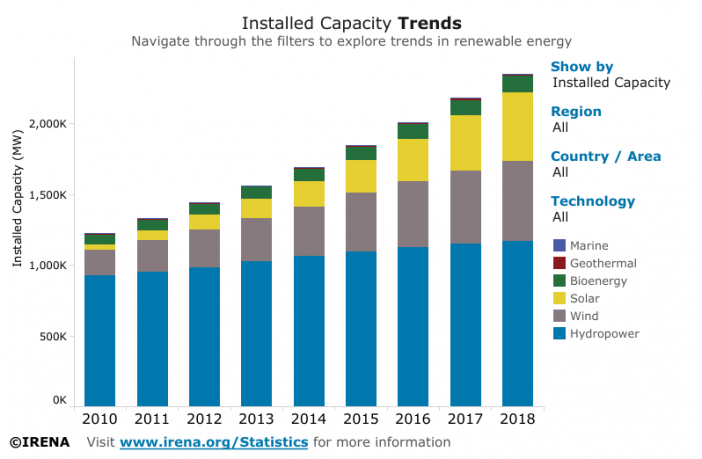- Renewables account for 63% of global new capacity generation according to International Renewable Energy Agency’s (IRENA) latest generation capacity update.
- The decade-long trend of strong growth in renewable energy capacity continued in 2018 with global additions of 171 gigawatts (GW).
- The annual increase of 7.9% was bolstered by new additions from solar and wind energy, which accounted for 84% of the growth.
In the Middle East, with its high levels of solar potential, supply grew by 7.1 per cent or an extra 1.3 GW, to reach a total of around 20 GW installed capacity, while the Gulf Cooperation Council (GCC) states are planning an additional 7 GW of new power generation from renewable sources by the early 2020s.
Renewable power generation capacity is measured as the maximum net generating capacity of power plants and other installations that use renewable energy sources to produce electricity. For most countries and technologies, the data reflects the capacity installed and connected at the end of the calendar year. Data has been obtained from a variety of sources, including IRENA’s questionnaire, official national statistics, industry association reports, other reports and news articles.
Author: GBA News Desk
Source: IRENA















